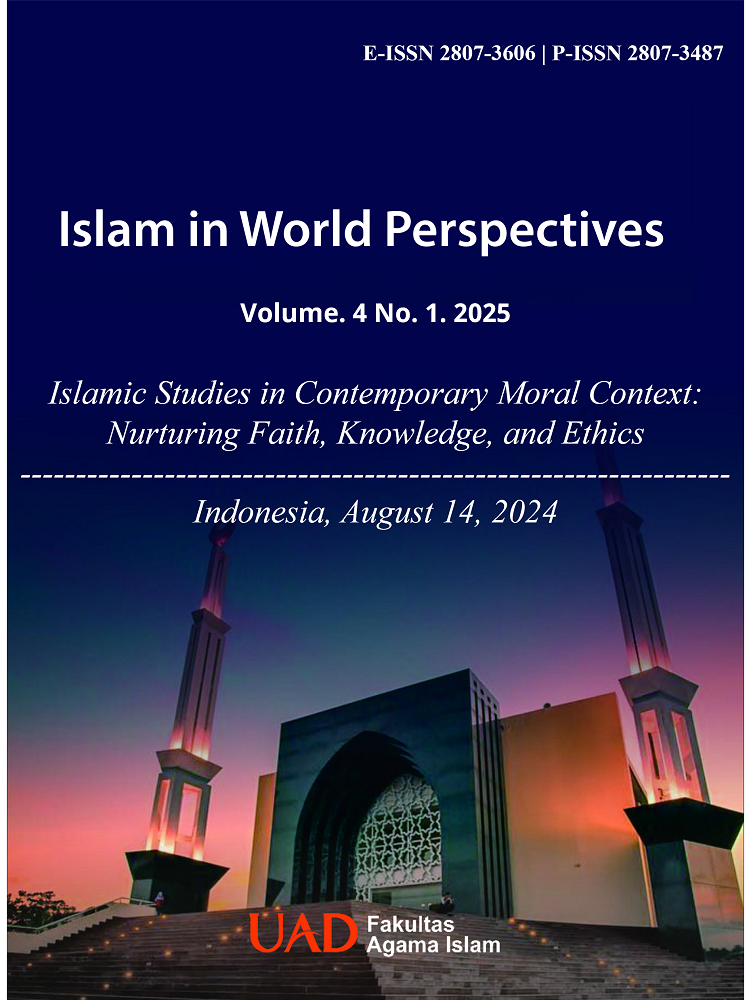The The prophet's green legacy: The prophet's practic in environmental conservation
Abstract
The escalating global environmental crisis has prompted the world community to seek sustainable solutions. Global warming, environmental pollution, loss of biodiversity, freshwater crisis, and increasingly frequent natural disasters are global issues faced by humanity. One of the efforts that can be done is to explore relevant values and practices from various religious traditions, including Islam. Islam, as a universal religion, has a comprehensive teaching about the relationship between humans and the universe. This study aims to examine the practices of the Prophet Muhammad in environmental conservation, especially in the context of planting trees. Through a literature study of hadith, this research found that Islamic teachings have since the beginning instilled awareness of the importance of preserving nature. The Prophet's practices in daily life have become an example for Muslims in managing natural resources wisely.
Downloads
Published
Issue
Section
License
Copyright (c) 2024 Rahmadi Wibowo

This work is licensed under a Creative Commons Attribution-ShareAlike 4.0 International License.
Authors who publish with Islam in world perspectives agree to the following terms:
- Authors retain copyright and grant the journal right of first publication with the work simultaneously licensed under a Creative Commons Attribution License (CC BY-SA 4.0) that allows others to share the work with an acknowledgment of the work's authorship and initial publication in this journal.
- Authors are able to enter into separate, additional contractual arrangements for the non-exclusive distribution of the journal's published version of the work (e.g., post it to an institutional repository or publish it in a book), with an acknowledgment of its initial publication in this journal.
- Authors are permitted and encouraged to post their work online (e.g., in institutional repositories or on their website) prior to and during the submission process, as it can lead to productive exchanges, as well as earlier and greater citation of published work.

This work is licensed under a Creative Commons Attribution-ShareAlike 4.0 International License.



